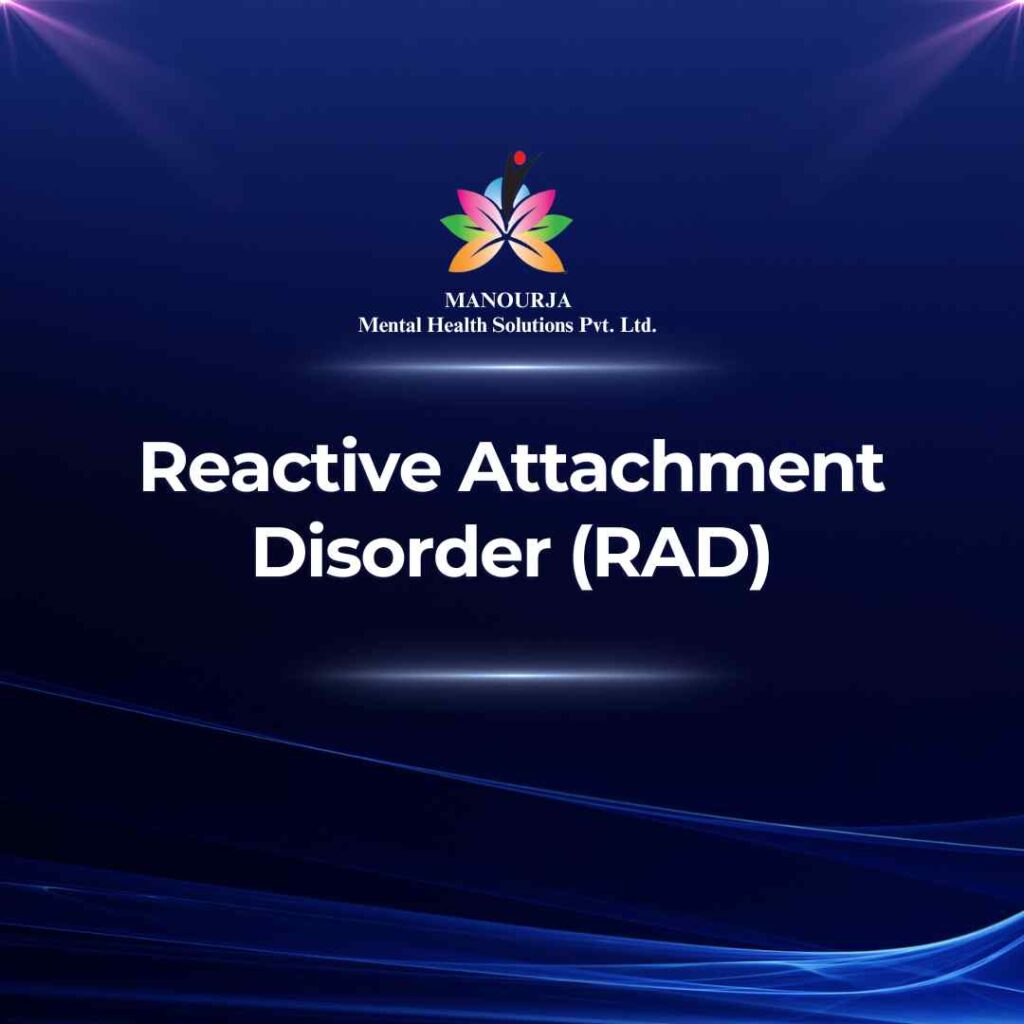Reactive Attachment Disorder (RAD)

Reactive Attachment Disorder (RAD) is a serious condition identified in children who have not formed a healthy emotional attachment with their primary caregivers, typically due to extreme neglect, abuse, or abrupt separation from caregivers early in life. This lack of attachment affects the child’s ability to establish or maintain close relationships and can significantly impact their emotional and social development.
Symptoms of Reactive Attachment Disorder
Children with RAD often exhibit distinct behaviors and symptoms that can be categorized into two main types:
Inhibited, Withdrawn Behavior
- Children are extremely withdrawn and emotionally detached.
- They fail to seek comfort from any caregivers when distressed.
- They do not respond to efforts by caregivers to comfort or engage them.
- They show minimal social and emotional responsiveness to others.
Disinhibited Social Engagement Behavior
- Children may exhibit indiscriminate sociability, such as excessive familiarity with relative strangers.
- They might lack reticence in approaching and interacting with unfamiliar adults.
- These behaviors are not modulated by the social context and can often be inappropriate.
Both types of behaviors stem from the child’s failed attempts to form attachments in their early years, leading to an inability to interact appropriately with others.
Forms of Reactive Attachment Disorder
RAD typically manifests in one of the two forms based on the behavioral characteristics:
- Inhibited Type: Where the child is extremely withdrawn and fails to initiate or respond to most social interactions.
- Disinhibited Type: Where the child does not exhibit reticence with unfamiliar adults and might excessively seek comfort and affection from people, regardless of their familiarity.
Treatment of Reactive Attachment Disorder
Treating RAD involves a combination of therapies and interventions aimed at creating stable and emotionally nurturing environments for the affected child. Here are some of the key treatment approaches:
Psychotherapy
- Attachment-based therapy: This form of therapy focuses on building or rebuilding a trusting relationship between the child and their caregivers. It aims to develop a secure attachment that fosters proper emotional and social development.
- Family therapy: Involves the entire family and works on improving the interactions within the family unit. It helps family members understand the disorder and develop ways to support the child effectively.
- Individual therapy: For older children, individual therapy can help them articulate their feelings and develop appropriate social skills.
Parenting Education
- Parents and caregivers might receive training on how to provide a supportive and emotionally stable environment for the child. This training includes understanding the specific needs of a child with RAD and learning how to respond to them effectively.
Social Skills Intervention
- Structured social skills training can be beneficial, especially for children exhibiting disinhibited behaviors. This training helps children recognize and respect boundaries and develop healthier social interactions.
School-Based Therapies
- Interventions may also extend into the school environment where teachers and school counselors can provide additional support and reinforcement of social skills.
Stability and Safety
- Above all, ensuring that the child’s living environment is stable, predictable, and secure is crucial for treatment. Children with RAD need consistency to build attachment and trust.
Treatment for RAD can be challenging and requires a coordinated effort from therapists, caregivers, and educational professionals. Early intervention gives the best chance for improving attachment behaviors and helping the child develop healthy relationships. Consistency, patience, and a nurturing environment are key components in managing RAD effectively.
At MANOURJA, we believe in the transformative power of counseling. Our experienced therapists offer a safe and supportive space where you can explore your thoughts, emotions, and challenges. Through personalized counselling sessions, we’ll work together to develop coping strategies, build resilience, and achieve lasting positive change. Discover the path to a healthier, happier you with MANOURJA counselling services.
MANOURJA Rehabilitation Services
At MANOURJA, we’re dedicated to helping you in rebuild your life, after difficult times. Our rehabilitation services focus on understanding what you need to move forward, whether you’re recovering from addiction, trauma, or any psychological – social challenges. We create personalized plans, that are all about helping you, regain your strength and find hope again. With a caring team by your side, you’ll have the support to make real progress and take steps toward a brighter, healthier future.
